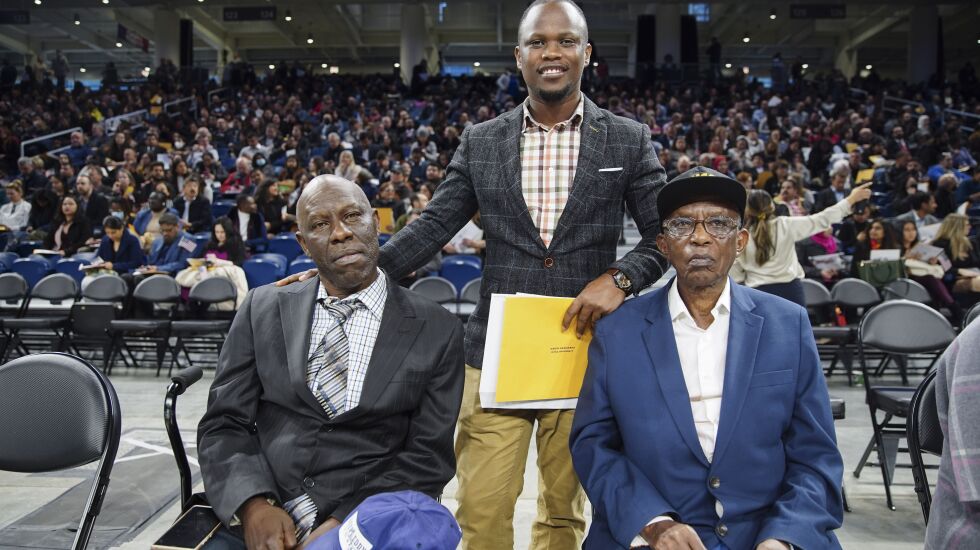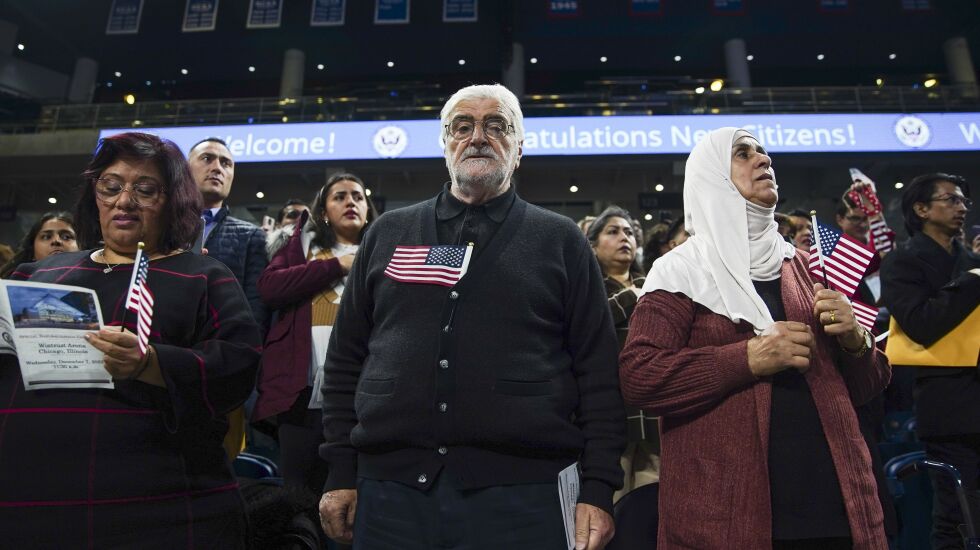
When Svjetlana Kiponjic left Bosnia nine years ago, she was looking for a better life.
She got a green card, worked a cleaning job, then met the love of her life. They married six years ago and had a child, David, now 2.
On Wednesday, she clutched a bouquet of flag-themed balloons minutes before she was granted U.S. citizenship in the largest naturalization ceremony ever held in Chicago.
“I was dreaming about this day,” she said. “I love this country and I’m very excited about this.”
She was one of 1,984 people from 120 countries who were naturalized at Wintrust Arena. The ceremony was three times bigger than the next largest, held in July at Wrigley Field, when 656 people took the oath of allegiance and became citizens.
Kiponjic brought her husband and a few friends to support her as she became a citizen of the country she has embraced.
“I consider this my home,” she said.
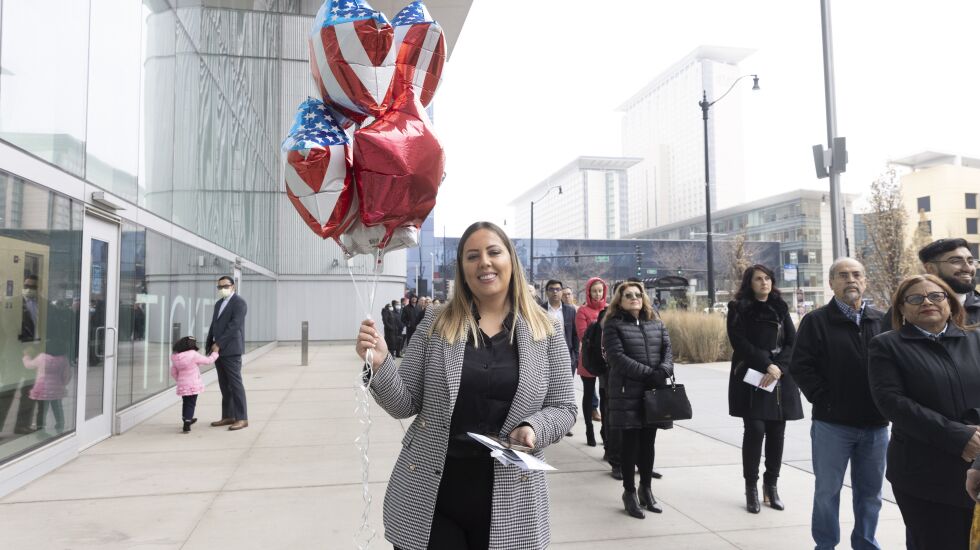
The COVID-19 pandemic forced the federal courts to get creative with naturalization ceremonies. To comply with social distancing rules in federal courthouses, where many swearing-ins had been held, ceremonies were moved outdoors, such as to Daley Plaza, or into large indoor public spaces including Northwestern University and the Auditorium Theatre.
Larger ceremonies free up space for trials at federal courthouses that would otherwise be needed to host additional ceremonies, according Julie Hodek, spokeswoman for the U.S. District Court in Chicago.
Many people taking part in Wednesday’s ceremony struggled to gain U.S. citizenship.
“There’s been sacrifices and bumps in the road, but today it’s over,” Chief District Judge Rebecca Pallmeyer told the crowd.
“Remember as you take this last step today, as you become United States citizens, you are not completely leaving the land of your birth behind,” she said.
“You are bringing with you the treasures of your native culture and contributing your treasures to this nation. Some of your words will become part of American speech. Some of your customs — your music, your food, your dances, your ways of looking at the world — all of that will become part of American culture.”
Gov. J.B. Pritzker also addressed the group.
“Your stories, as American citizens, are just beginning,” Pritzker said. “And your presence here today is shaping our future for the better.”
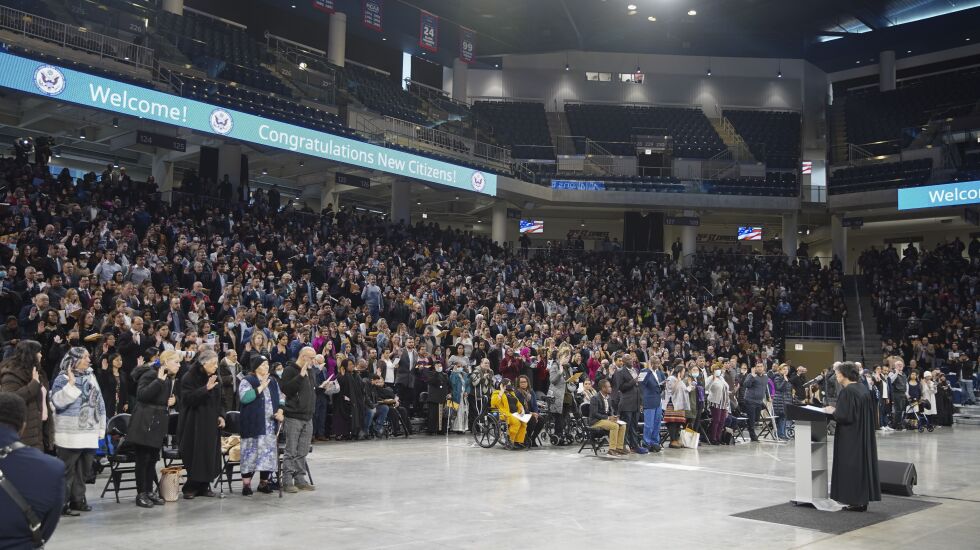
The local federal court holds several naturalization ceremonies every week, sometimes two a day.
Naturalizations dropped sharply at the beginning of the COVID-19 pandemic but have been steadily rising to all-time highs.
More than 900,000 immigrants became U.S. citizens during the 2022 fiscal year, according to a Pew Research Center estimate. That’s the third-highest yearly total on record and the most since 2008, when more than a million people were naturalized.
Meanwhile, the U.S. continues to chip away at a large backlog of applications for naturalization. About 673,000 applications were pending in June, down from more than a million in December 2020, according to Pew.
The ambitiously large ceremony Wednesday had its own hiccups. Attendees complained about expensive parking and bad planning. Hundreds unknowingly lined up for about a half an hour at a handicapped-only entrance that wasn’t labeled. And organizers shifted sections of people within the arena to expand a section for the citizens-to-be.
Jenny Wong said she was “relieved” her mother, Kam, was granted citizenship after leaving Hong Kong. Citizenship will allow her mother to travel with fewer restrictions to see her ailing sister overseas.
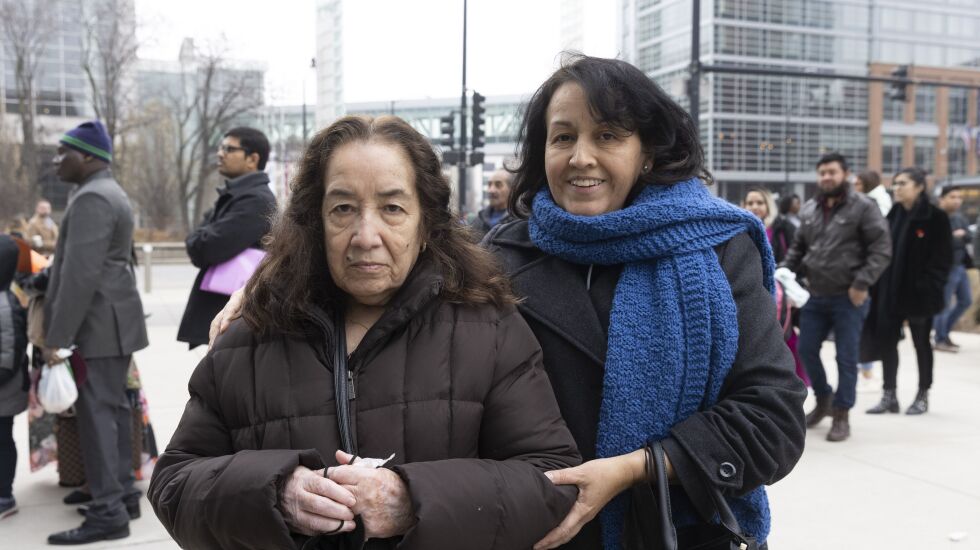
Maria Olivarez was proud of her mother, Maria Hernandez, 75, for passing the 20-question citizenship test. “She put in a lot of time and effort,” Olivarez said.
Celestine Mugisha sat next to his father, Ceceka Peter, 77, who was becoming a citizen after living 20 years in a Ugandan refugee camp before settling in Chicago.
“No one accepted them as citizens for all that time” living in Uganda, he said. “But after being here for six years or five years and you’re accepted as a citizen, that is emotional. That is really a great achievement,” Mugisha said of his father, who speaks Swahili.
In 2020, Mugisha told the Sun-Times how he met his now-wife at the camp after he and his family fled the Congo in 1996. Despite the pandemic’s challenges, he settled in Rogers Park.
Mugisha had become a citizen in April in a much smaller ceremony. He appreciated the oversized ceremony for his father.
“This is massive, and I like it,” he said. “This was really special.”
